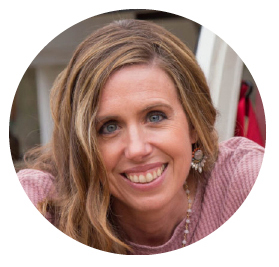June 19, 2020
By Shannon Mannon, Co-Founder, the 3-Minute Storyteller, and Partnership Community Leader
Thanks Shannon for your permission to reprint the 3MS June, 2020 newsletter post.
 Do you also feel like we?re living inside a cycle of epic destruction, the stuff of myths, Book of Exodus times?
Do you also feel like we?re living inside a cycle of epic destruction, the stuff of myths, Book of Exodus times?
Black people are being murdered. Riots and looting are unfolding in the streets. Unemployment rates are soaring. A global pandemic isn?t close to being contained.
All of these viruses?racism, COVID-19, inequality, poverty, white supremacy?have finally triggered our sluggish, collective immune system to respond.
But life perpetuates itself through death. Forest fires seed new growth. Fields left fallow produce bountiful harvest. Falling leaves make way for spring buds.
Watching protests and riots roil across communities in America, like a snake wrapped around itself, it?s hard to tell where destruction ends, and creation begins.
Maybe that?s the point. Maybe we aren?t supposed to.
First the truth, then the reconciling?
During South Africa?s Truth and Reconciliation Commission, white perpetrators were required to come face to face with the black families they had victimized physically, socially, and economically.
Before his new government could have any hope of legitimacy, Mandela intuited that there needed to be a public airing of the trauma and violence that happened under apartheid. A strong foundation of democracy could not be built until they listened to each other?s stories, and publicly acknowledged generations of wrong-doing.
He understood the necessary order of things: First the truth,?then?the reconciling.
While the commission has been criticized for not going far enough to repair the wounds of apartheid, it did succeed in pulling the country back from the brink of civil war, and into safer waters.
A fundamental change in our worldview is required to build a new world not based in the domination and dehumanization, but in partnership and love.
Our United States has not yet mustered the collective courage to address our original sins.
We want to bypass the uncomfortable truth-telling and get straight to the reconciling. After all, that fits better with the story we tell ourselves about America.
Our preferred narrative says that the evils of slavery were mended by the civil rights era, and the Obama presidency proved that we?re a post-racial society.? Progress might be slow, but we?re on an inevitable march towards equality.
The truth is much closer to the fight scene in the movie?Anchorman.
Instead of newscasters, it?s a relentless push and pull between forces fighting to maintain the punishing status quo, those demanding we live into our promise of liberty and justice for all, and those somewhere in the middle wrestling with guilt, complacency, and an earnest desire to do better.
Trading judgement for awe?
Hope lies in how many of us are dusting off the cobwebs of passivity, reclaiming power to shape our future, to become what Emerson calls ?active souls.?
Just because our leaders aren?t ready to reckon with the truth doesn?t mean we can?t be.
We can walk out our front door right now and invite someone we?d like to better understand into conversation. We can practice how to disagree respectfully, challenge perspectives, not people, and call each other into widening circles of care.
Guerilla truth commissions fueled by a grassroots network of meaningful conversations can crop up wherever we gather?dinner tables, zoom meetings, one day again, coffee shops?and unleash a firestorm of empathy and compassion.
?The ultimate measure of health in any community might well reside in our ability to stand in awe at what folks have to carry rather than in judgement at how they carry it,? Father Greg Boyle, Founder of Homeboy Industries, a Los Angeles gang rehabilitation center, said in?our 2017 conversation.
Conversations get us closer to trading judgement for awe. Sometimes, with a little luck and lots of vulnerability, sharing the stories of our lives helps us breach the semi-permeable membrane between us. As the veils of separation thin, we catch a fleeting glimpse of the field of perpetually existing love that connects us.
With new eyes, new ears, and new hearts, looting and rioting begin to look less deserving of our swift condemnation, and more like an expression of hopelessness from people for whom the promise of America has repeatedly failed.
Inner work for outer change?
Martin Luther King, Jr.?s posthumously published ?A Testament of Hope,? helps put today?s protests in context with the long legacy of civil uprising.
?Americans who genuinely treasure our national ideals, who know they are still elusive dreams for all too many, should welcome the stirring of Negro demands,? he writes. ?Negro agitation is requiring America to reexamine its comforting myths and may yet catalyze drastic reforms that will save us from social catastrophe.?
Decades of grassroots activism, and the scaffolding of organizing that supports it, have led us from the civil rights era to this moment of mass uprising.
Major cities are divesting from punitive tactics of violent domination and investing in community care and social healing.? Confederate statues are falling.? Anti-racism books lighting up best seller lists.
These are good signs of change.? But we need to be mindful of our entrenched urge to declare victory.
Our ability to live into the promise of America isn?t a going to happen through elections and reforms alone.
External reforms can only go as far as the internal work that accompanies them. A fundamental change in our worldview, a new way of processing everything we know, is required to build a new world not based in the domination and dehumanization, but in partnership and love.
It took a global pandemic to slow us down long enough to process the moral outrage of Black people being killed by those sworn to protect them.
May that keep us humble to the work ahead.
Undoing generations of emotional repression, projection, and denial, what Carl Jung called our ?collective shadow? that?s kept us all trapped in system of white supremacy, isn?t going to happen overnight. Cultivating whole-hearted connection with ourselves, each other, and the world around us, takes time, training, and lots of practice.
My husband Mike taught our son that in order to hit the ball hard, he had to hold his golf club softly, as if he was cradling a tiny bird.
Ahead of us is a long, slow, grueling path towards living into our fullest potential, into freedom, into collective liberation.
May we hold each other gently, like a baby bird.
Making goodness irresistible?
Today?s movement for black lives holds a vision that is less about resistance and more about making goodness irresistible.
Fierce demands for justice are woven with scared healing practices to combat grief and heal the trauma of racism.
The statement of beliefs of Black Lives Matter Global Network is a declaration of interdependence. Such evocative language shimmers and beacons??
?Healing ourselves and each other.?
?Co-creating alongside comrades, allies, and family a culture where each person feels seen, heard, and supported.?
?Work vigorously for freedom and justice for Black people and, by extension, all people.?
?Intentionally build and nurture a beloved community that is bonded together through a beautiful struggle that is restorative, not depleting.?
Peaceful demonstrations in more than 2,000 US communities, in all 50 states, and in many countries, mostly organized by the Black Lives Matter global movement alchemizes these transcendent words into immanent reality.
Antwon Rose was the honor roll high school student killed in 2018 by a police officer in Pittsburgh. At a protest this week, I listened as his cousin addressed the crowd.
He began by saying, ?Let me be clear. To the police officers here today, we love you. We are you brothers and sisters. This is not a black community vs. police officers issue. This is not a black vs. white issue. This is all of us against systemic racism.?
Antwon?s murder devastated and outraged him and his entire family. Then George Floyd?s murder triggered them all over again.
He stood before the crowd as a living testimony for what it means to love your enemy, to forgive your oppressor, to choose love over fear, to channel outrage for peace.
Wholeness and healing, he showed us, doesn?t come in spite of grief and loss, but because of it.
Becoming benders ?
These demonstrations are full-bodied civil liturgies awakening our body politic?clapping, stomping, call-and-response-fist pumping?the physicality of ritual shakes the dust off our sense of possibility.
Black church reimagined for public square: bodies together in motion awaken collective hope.
As Martin Luther King, Jr. said ?the arc of the moral universe is long, but it bends toward justice.?
But this arc does not bend on its own.
It bends because we bend it.
The choice before us now is to not to rush to a happy ending, but to summon a complexity that can bear the urge to quell the agitation rocking our nation while remaining ever vigilant to promise of new beginnings.
Black Lives more than matter. Black Lives are exalted. Black Lives are divine.
We are Black Lives, and Black Lives are us.
We are a nation burning, yes.
We are also a nation building.
Birthing.
Bending.
Shannon Mannon has lead teams, organizations, and movements locally, nationally and internationally to widen circles of compassion to include us all. Early experiences leading medical missions across the global south shaped Shannon?s vision of a world based in partnership systems. Shannon founded 3-Minute Storyteller (3MS) with her husband Mike in 2015 to ignite social change through nourishing conversations. www.3MinuteStoryteller.com
Contact Shannon:?smannon@3minutestoryteller.com
Living Room Conversations
Send Shannon your partnership stories. Tell us who you’re gathering and what you’re learning. Send to: shannon@livingroomconversations.org
Photo by Nathan Dumlao on Unsplash
![]()




Leave a Reply